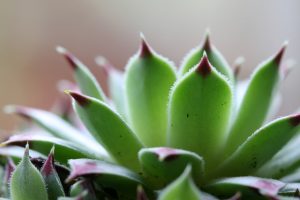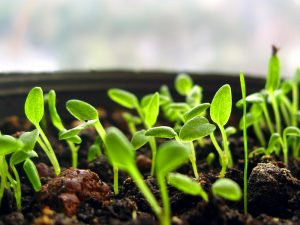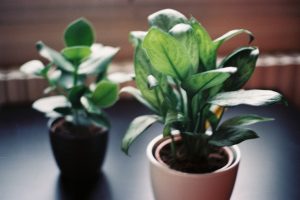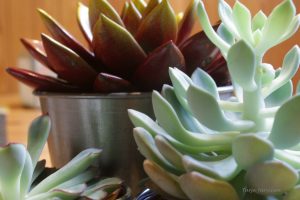
Image: Angela Bax, Flickr Commons
Since the 1980s, scientists have examined how the natural environment affects humans. As we become more dependent on technology, we spend 85%-90% of our daily life indoors, and interacting with nature becomes less of a priority. Thus, incorporating indoor plants into common workspaces to compensate is not a novel trend. Nevertheless, young people have recently garnered a liking to the “Instagram-worthiness” of owning plants, rather than its physiological benefits. I myself have succumbed to this state-of-mind, and recently bought five succulents—which have now been sitting on my windowsill for the last three weeks without being moved to proper pots. For those of us without the greenest of thumbs, the following are three benefits of owning indoor plants that will hopefully keep you motivated enough to keep them alive for more than a month!
-
Stress Reducers

Image: Михаил, Flickr Commons
Over the last two decades, it has been well documented that indoor plants reduce physiological stress. In a recent study, researchers observed the effect of indoor plant interaction specifically on the part of our nervous system that controls our bodily stress response. They found that active interactions with indoor plants, such as moving the plant from one place to another, reduced blood pressure and suppressed the activity of the stress-causing systems in our body.
Another study showed that patients in hospital rooms containing plants experienced significant reductions in blood pressure, pain, stress, anxiousness, and exhaustion. According to this study, indoor plants contributed to an overall positive patient perspective of their surroundings. In a similar study, it was shown that indoor plants might enhance patient well-being and stress-resilience by promoting a sense of reflection and meaningfulness.
-
Increased Productivity

Image: Alexandre Megalhaes, Flickr Commons
Researchers have found that in the presence of plants, office workers were able to fulfill cognitive tasks significantly quicker than the control group. This study also showed that doing work in the presence of plants showed an increase in productivity, while taking a five-minute break when conducting the cognitive task showed no change in productivity. A more recent study also produced similar findings, indicating that indoor plants were significantly correlated to a decrease in job-induced stress, complaints about health, and sick-leaves.
-
Air Fresheners
Volatile organic compounds (VOCs) are common chemicals that pollute indoor air due to its widespread use in consumer products. Aside from its negative environmental effects, negative physical effects due to overexposure to VOCs range from light-headedness, to nervous system damage, to cancer. As we all know, plants convert carbon dioxide into oxygen for us to breathe. However, a famous study conducted by NASA also showed that up to 87% of VOCs can be taken up and stored by indoor plants in 24 hours—thus significantly decreasing indoor air pollution and providing us with clean air to breathe.
In a nutshell, active interaction with indoor plants are associated with reduced stress levels, possible increase in productivity, and cleaner air. With these in mind, hopefully you are more inclined to keep your little green friends happy, or inspire you to start a little indoor sanctuary of your own!
- Annica Eustaquio


2 responses to “Treat Your Plants the Way You Want to be Treated”